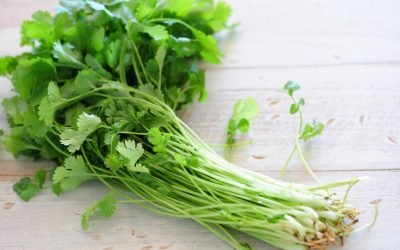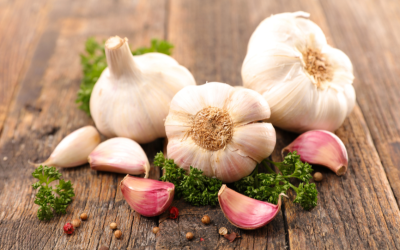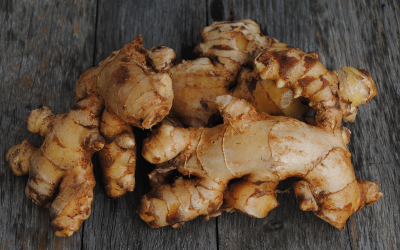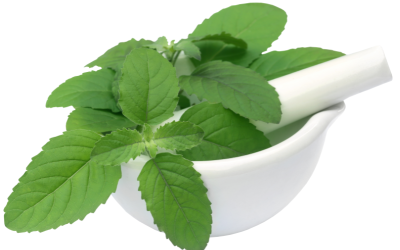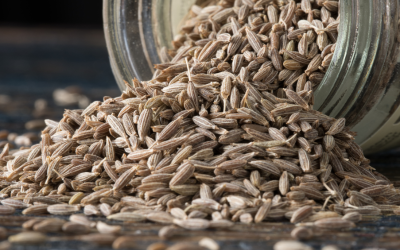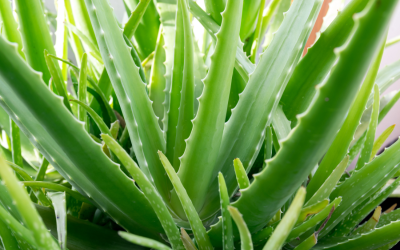Long Pepper Uses: Incorporate Pippali for Better Health

Long Pepper, known as “Pippali” in Hindi and scientifically referred to as Piper longum, stands as a remarkable spice that has been cherished for centuries for its myriad health benefits. This slender, cylindrical spice, resembling black pepper, has been an integral part of traditional medicine systems, especially in Ayurveda. Let’s delve into the world of Long Pepper, exploring its English name, Hindi name, scientific classification, and the incredible ways it has been harnessed to combat various ailments and promote overall well-being.
Long Pepper, scientifically known as Piper longum, is a venerable spice deeply rooted in the traditions of natural healing, particularly in the ancient system of Ayurveda. Known as “Pippali” in Hindi, this slender and aromatic spice bears testament to the rich tapestry of botanical wonders that South Asia has contributed to the world.
Benefits of Long Pepper (Pippali)
Long Pepper boasts a range of health benefits, many of which have been recognized and utilized for centuries in traditional medicine systems like Ayurveda. Here are some key benefits of Long Pepper:
Digestive Health:
Stimulates Digestive Enzymes: Long Pepper contains piperine, which helps stimulate the production of digestive enzymes. This aids in the breakdown of food, promoting better digestion.
Relieves Indigestion: It is traditionally used to alleviate indigestion, bloating, and flatulence, making it a valuable remedy for various digestive issues.
Respiratory Support:
Manages Respiratory Conditions: Long Pepper is known for its expectorant properties, which help clear respiratory passages. It is used to manage conditions like coughs, asthma, and bronchitis.
Eases Breathing: The spice’s ability to promote respiratory health can contribute to easier breathing and improved lung function.
Anti-Inflammatory Properties:
Alleviates Joint Pain: Long Pepper exhibits anti-inflammatory effects, making it beneficial for individuals dealing with arthritis and joint pain. It helps reduce inflammation and may provide relief from discomfort.
Antioxidant Action:
Neutralizes Free Radicals: Long Pepper contains antioxidants that help neutralize free radicals in the body. This antioxidant action may contribute to overall cellular health and reduce oxidative stress.
Immune System Boost:
Enhances Immunity: Long Pepper is believed to have immune-boosting properties, helping the body’s natural defense mechanisms. This can contribute to overall resilience against infections and illnesses.
Cardiovascular Health:
Regulates Blood Pressure: Some studies suggest that Long Pepper may have a positive impact on cardiovascular health by helping to regulate blood pressure levels.
Improves Heart Health: Its potential to enhance cardiovascular function can contribute to better heart health.
Neuroprotective Effects:
Potential for Brain Health: Emerging research indicates that Long Pepper may have neuroprotective properties, suggesting its potential to support brain health and possibly play a role in the prevention or management of neurodegenerative diseases.
Anti-Diabetic Properties:
Blood Sugar Regulation: Preliminary studies suggest that Long Pepper may assist in managing diabetes by helping regulate blood sugar levels. Its effects on insulin sensitivity and glucose metabolism are areas of ongoing research.
Adaptogenic Qualities:
Balances Stress Response: Long Pepper is considered an adaptogen, which means it may help the body adapt to stress. This can have a positive impact on overall well-being and resilience.
Traditional Ayurvedic Uses:
Balancing Doshas: In Ayurveda, Long Pepper is used to balance the three doshas (Vata, Pitta, and Kapha), making it a versatile herb in Ayurvedic formulations targeting a wide array of health concerns.
Remedies for different ailments and methods to use
1) Bronchial Asthma:
Take a mixture of equal quantities of the powder of long pepper, dried ginger, and black pepper thrice daily.
2) Cough, fainting, gas problems:
Boil 1/2 tsp powdered long pepper on one glass of cow’s milk and drink.
3) Hiccups, Sinus congestion, Sore throat:
Add one teacup of boiled water, half a teaspoon of each ground long pepper, cloves, and a pinch of rock salt, and let the mixture steep for 10 minutes. Filter, and drink while still warm.
4) Diarrhea:
Take the powder of 1/2 teaspoon long pepper along with warm water. Take once daily.
5) Fatigue, Sexual debility:
Mix equal quantities of the powders of long pepper and Chebulic Myrobalan. Add Some honey. Take 1 teaspoon twice a day for one or two months.
6) Vomiting:
Miss half a teaspoon of each finely ground long pepper, juice of Matulunga (Citrus medica), and sugar with one teaspoon of honey and swallow.
7) Influenza (preliminary stages):
Mix half a teaspoon of the powder of long pepper with two teaspoons of honey and half a teaspoon juice of Ginger. take thrice a day.
8) Tinea versicolor:
Take 1/2 teaspoon long pepper powder along with 1 teaspoon of honey for 40 days.
While Long Pepper offers these potential health benefits, it’s important to note that individual responses may vary. Before incorporating Long Pepper or any new supplement into your routine, it’s advisable to consult with a healthcare professional, especially if you have existing health conditions or are taking medications.
Precautions
Consultation with Healthcare Professional:
Before incorporating Long Pepper into your diet or using it for medicinal purposes, consult with a healthcare professional, especially if you are pregnant, nursing, have existing health conditions or are taking medications. This is crucial to ensure that Long Pepper won’t interact negatively with your current health status or medications.
Potential Interactions:
Long Pepper may interact with certain medications. It’s important to be cautious if you are taking medications for blood pressure, diabetes, or blood-thinning medications. Piperine, a compound found in Long Pepper, may affect the absorption and metabolism of some drugs.
Allergic Reactions:
Individuals with known allergies to spices, particularly those in the Piperaceae family (which includes black pepper), should exercise caution when using Long Pepper. Allergic reactions can include skin rashes, itching, or respiratory issues.
Dosage Considerations:
While Long Pepper is generally safe when used in culinary amounts, the use of concentrated extracts or supplements may require careful consideration of dosage. Excessive intake may lead to adverse effects.
Gastrointestinal Sensitivity:
Some individuals may experience gastrointestinal discomfort, such as stomach upset or acid reflux, when consuming spicy foods like Long Pepper. If you have a sensitive stomach, it’s advisable to start with small amounts and monitor your body’s response.
Pregnancy and Breastfeeding:
Pregnant and breastfeeding women should use Long Pepper cautiously. While it has been traditionally used to stimulate digestion, its safety in these populations has not been extensively studied, and it’s best to err on the side of caution.
Children and Elderly:
The safety of Long Pepper in children and the elderly is not well-established. It’s advisable to consult with a healthcare professional before introducing Long Pepper into the diet of these populations.
Quality of Products:
When using Long Pepper supplements, ensure that you choose high-quality products from reputable sources. The quality and purity of herbal supplements can vary, and it’s essential to select products that have been tested for contaminants.
Duration of Use:
Long-term use of any herbal supplement should be approached with caution. It’s advisable not to use Long Pepper continuously for an extended period without consulting a healthcare professional.
Always remember that individual responses to herbs and supplements can vary, and what works for one person may not work the same way for another. It’s crucial to approach the use of Long Pepper with mindfulness and seek professional advice when needed. If you experience any adverse reactions, discontinue use and consult with a healthcare provider.

How to make some Long Pepper (Pippali) Based products for home remedies at home:
Long Pepper (Piper longum) can be utilized to create various herbal products, each harnessing its unique medicinal properties. Here are some simple recipes for making different herbal products from Long Pepper:
Long Pepper Infused Oil:
Ingredients:
1 cup Long Pepper (coarsely crushed)
2 cups carrier oil (such as sesame oil or coconut oil)
Instructions:
Combine the coarsely crushed Long Pepper with the carrier oil in a clean, dry glass jar.
Place the jar in a sunny spot or in a warm area for 2-4 weeks to allow the infusion to take place.
Strain the oil using cheesecloth or a fine mesh strainer.
Store the infused oil in a dark glass bottle in a cool, dark place. Use it topically for massages or as a base for herbal salves.
Long Pepper Tincture:
Ingredients:
1 cup Long Pepper (finely ground)
2 cups high-proof alcohol (such as vodka or brandy)
Instructions:
Combine the finely ground Long Pepper with the alcohol in a glass jar.
Seal the jar and place it in a cool, dark place for 4-6 weeks, shaking it occasionally.
Strain the tincture using a fine mesh strainer or cheesecloth.
Store the tincture in a dark glass bottle. Take a few drops diluted in water or juice, as directed by a healthcare professional.
Long Pepper Tea:
Ingredients:
1 teaspoon dried Long Pepper
1 cup hot water
Instructions:
Place the dried Long Pepper in a cup.
Pour hot water over the Long Pepper and let it steep for 5-10 minutes.
Strain the tea and sweeten with honey or another natural sweetener if desired.
Enjoy the tea for its digestive or respiratory benefits.
Long Pepper Poultice:
Ingredients:
2 tablespoons crushed Long Pepper
Water (as needed)
Instructions:
Mix the crushed Long Pepper with enough water to form a paste.
Apply the paste directly onto the affected area (such as joints for arthritis).
Cover with a clean cloth and leave it on for 15-20 minutes.
Rinse off with warm water. This poultice may help with joint pain and inflammation.
Long Pepper Tooth Powder:
Ingredients:
1 tablespoon powdered Long Pepper
2 tablespoons baking soda
1-2 drops of peppermint essential oil (optional for flavor)
Instructions:
Mix the powdered Long Pepper with baking soda.
Add peppermint essential oil if desired for flavor.
Use this herbal toothpowder to brush your teeth, promoting oral health.
Before trying any herbal product, especially if used for medicinal purposes, it’s essential to consult with a healthcare professional to ensure it is suitable for your specific health condition and doesn’t interact with any medications you may be taking.
Send Us A Message
FAQs
- Long pepper can be ground and used in a variety of dishes, such as curries, soups, and stews. It can also be used in spice blends like garam masala or pickling spices. Its strong flavor can add depth and warmth to meals.
- Long pepper has various health benefits, including aiding digestion, reducing inflammation, and relieving respiratory issues. It also has potential antioxidant and antimicrobial properties, which can support overall health and well-being.
- Long pepper is believed to boost metabolism and improve digestion, which can aid in weight loss. Its thermogenic properties may also help in burning calories and fat more efficiently when incorporated into a healthy diet and lifestyle.
- Long pepper is generally safe when used in moderate amounts. However, excessive consumption may cause digestive upset or irritation. People with certain health conditions or those taking medications should consult a healthcare provider before using long pepper as it may interact with certain drugs or exacerbate existing health issues.







